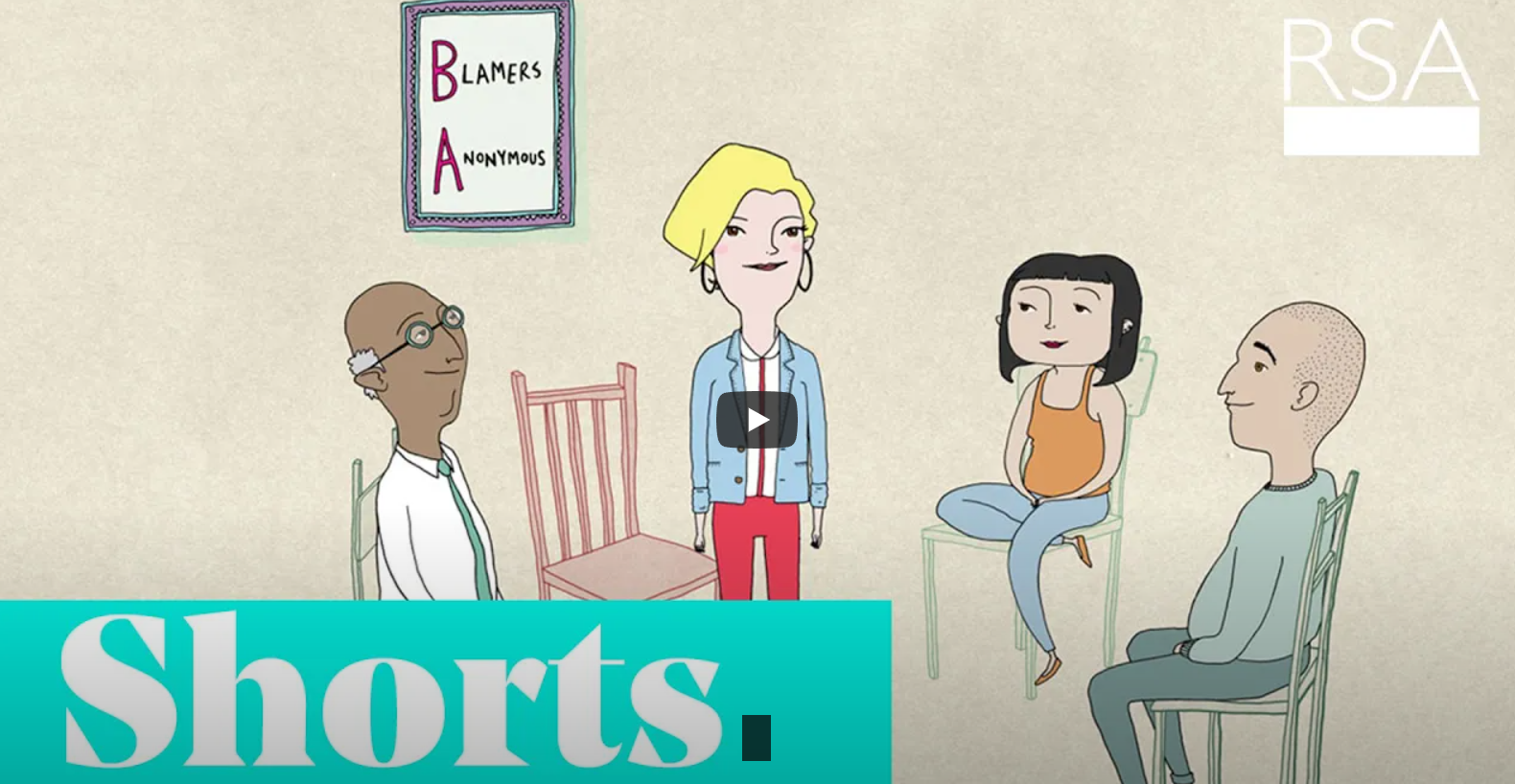Blog Layout
Why do couples wait so long before they seek a marital therapist?
Kathleen Maiman • April 3, 2014
Ideally, couples would seek help before problems become overwhelming, however, many couples wait up to 6 years before seeking help.
Why the wait when it comes to marital problems...
Many couples feel embarrassed or shy about revealing their problems. Shame is the barrier for not sharing their problems. Feeling bad about themselves, and not being able to work through it on their own, they are in fear of having someone pointing it out to them. That sense of inadequacy heightens…especially for men. The wife may be threatening divorce or separation before his willingness sets in to join her in a therapy office. When he does, she is often very hurt, filled with resentment and is unwilling to open herself. He now tries to do everything to preserve their relationship. At this point, her ambivalence may be high and their hope has waned. This last ditch attempt has high stakes and high expectations for this couple adding to their challenges that already exist.
Other couples feel that they need to understand their problems before seeking help. One or both of them may have seen an individual therapist. This approach has some benefit. One person can change a relationship. However, it is often a slower process than two people working together as a team. By the time, couples get to a later stage; they have tried their own methods to connect and now have lost hope. With little communication skills in being able to hear and understand each other, they have developed a “hardness” or distance that seems almost impossible to break through.
The overall research indicates that couples wait these six years before seeking help in their relationship. Many couples frequently think that they should be able to fix their own problems and are reluctant to seek help. They are called the “do it yourselfers”. They may have purchased a marriage book – read some of the exercises and made some attempts. Having difficulty with learning and doing the processes, they get frustrated and tell themselves it won’t work. The book goes on the shelf and they fall back into their status quo. Their feelings of hopelessness and despair continue.
Denial plays a part in couples seeking the help of a therapist. They think for many years that they are doing fine – their relationship is “good enough”. The hints of disconnection may have appeared earlier, also some feelings of dissatisfaction but not enough to risk revealing theirs truths in a conversation. Many couples think – “why rock the boat, if it ain’t broke – don’t fix it”. These denial statements keep couples from feeling the anxiety and fear about opening up Pandora’s box. Many couples believe that if they begin to acknowledge their hurts, fears and resentments…they won’t be able to deal with them (even with the help of a therapist) and they would rather live with the “devil they know”, then the “devil they don’t know”. Avoiding these inclinations and painful feelings adds to the underlying discontentment and disillusionment without resolution.
“An ounce of prevention is worth a pound of cure."
Ben Franklin
Waiting so long to seek the help of a marital level increases the difficulty in making the repairs, however, not impossible! With issues, having been “swept under the carpet”, it may take some time to reconnect.
Are there ways to avoid the crisis and maintain the connection?
What are the benefits to seeing a therapist, and getting some assistance early on?
Just as a healthy lifestyle includes preventative measures, so does a healthy relationship. By implementing safeguards and tools for a healthy connection, we can reap the rewards for a long happy marriage. Research repeatedly shows that marital education and relationship therapy can significantly increase your chance of staying happily married.
One primary motivation in therapy is to re-educate the couple that conflict and struggle are a necessary part of a healthy relationship as noted by John Gottman, The Marriage Institute. When couples are able to re-frame their struggles and conflict as “growth trying to happen”, there are more readily able to see their relationship is a milieu for expansion and growth.
For many, learning that any unfinished business with our parents/caregivers is showing up in the “adult love relationship” and attempting to be completed/healed in the present brings a feeling of compassion and relief. Couples learn that there is nothing wrong with their marriage and or the person that they have chosen.
Learning how to create a safe, reliable connection becomes the focus, a basic survival need whether we are from the cradle or close to the grave.
A marital therapist can provide feedback and the necessary tools to increase the closeness, respect and affection for one another. With new awareness and tools, the couple are better at understanding one another and maintaining their connection through the “unavoidable and inevitable” conflict that is supposed to happen.
Even though handling our own problems comes with the advantage of not having to share your problems in front of someone else; it is often difficult to see what is at the root of the issue. The assistance of a therapist can offer the objective, safe and neutral perspective to allow a breakthrough in the “blind spots”. A therapist can hold and create a safe place for the defenses to lower and the vulnerabilities to emerge, inviting more closeness and connection.
Regardless of the stage a marriage is in, every couple has the ability to restore their loving feelings and create an environment for safe connection. Even when things seem beyond help, there is hope. With the guidance of an effective therapist and the courage and willingness of the individuals, every couple has the potential to heal their relationship.
Register for our Newsletter and receive a Free Love Chat Package
This Package Includes
- The 5 Steps to a Better Relationship
- Ongoing Monthly Relationship Tips
- If you want more love in your life, our relationship Love Chat Package is an easy cost-free first step.
Share
Tweet
Share
Mail

By Kathleen Maiman
•
March 17, 2025
Like many of us, I grew up in a family where there weren’t a lot of boundaries or assertiveness in requests. Rigid controlling behaviours were there instead of healthy boundaries. Here are some tips that I have learned about relationships and setting these boundaries. People have better relationships when there are healthy boundaries. And making requests, gives the other party the opportunity to meet us in our needs. Read on to better understand the difference between a request, a boundary, and an ultimatum.

By Kathleen Maiman
•
February 13, 2025
In the spectrum of romantic relationships, there are four levels. The first stage is a crush . In this stage, you feel warm inside while hanging out with a man or a woman who pays attention to you, looks sweetly at you, smiles at you or who is kind to you. You find that you like each other. This is a crush and it passes away with time. It doesn`t stay strong and there is no significant bond there. Adapted from Sri Krishnaji – Co-founder of Oneness and World Centre for Enlightenment. Author of Four Sacred Secrets: For Love and Prosperity

By Kathleen Maiman
•
January 27, 2025
A couple trudged into my therapy office, slumped down in their chairs and glared at one another. The tensions were high and the emotions were charged. This couple in their 40s had yet another fight on the way to their appointment. This fight was a continuation of something that started last night, but the truth was they had variations of the same argument for the last five years. “I’ve asked you to be kinder, but you speak to me with such contempt and attack me,” he complained. “But you’re doing things that upset me,” she counter-claimed. “What am I supposed to do?” They were at impasse and falling into this unhealthy dynamic over and over by making three common mistakes made by couples. What are these mistakes? Could knowing them transform your relationship?

By Kathleen Maiman
•
December 13, 2024
With the holiday season upon us, aliveness and energy is in the air. The season can also be fraught with frenzy and heightened emotions. It is not uncommon for couples to be overwhelmed or disconnected during the holidays, especially if one or both of the partners gets triggered by certain events. The added stress can create relationship strife and difficulties.

By Kathleen Maiman
•
September 18, 2024
Blaming is a natural human tendency. When something bad happens, the first thing we want to know is, “whose fault is it?” Dr. Brené Brown considers why we blame others, how it sabotages our relationships, and why we desperately need to move beyond this toxic behavior. Watch her short on blaming below.

By Kathleen Maiman
•
June 25, 2024
Under stress, we move into doing and saying things that are often unskilled and immature. These behaviours can cause harm to another and erode relationships over time. It is not that we are uncaring in those times; rather, the stress responses mean we have reached an unhealthy capacity or emotional limit.
Upcoming Programs and Retreats
More Reading on Couples Counselling
© 2025











